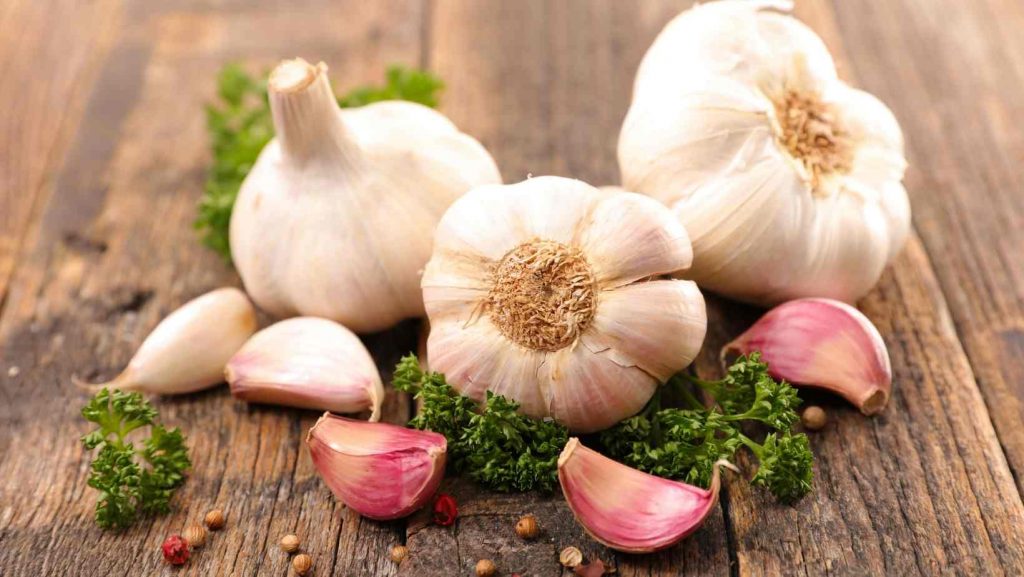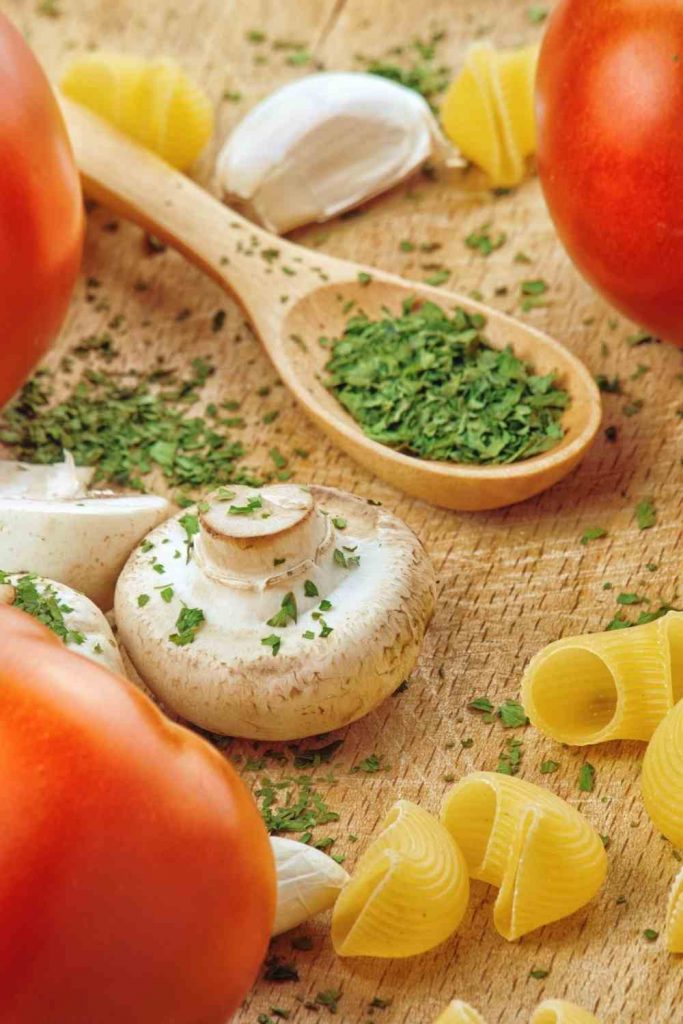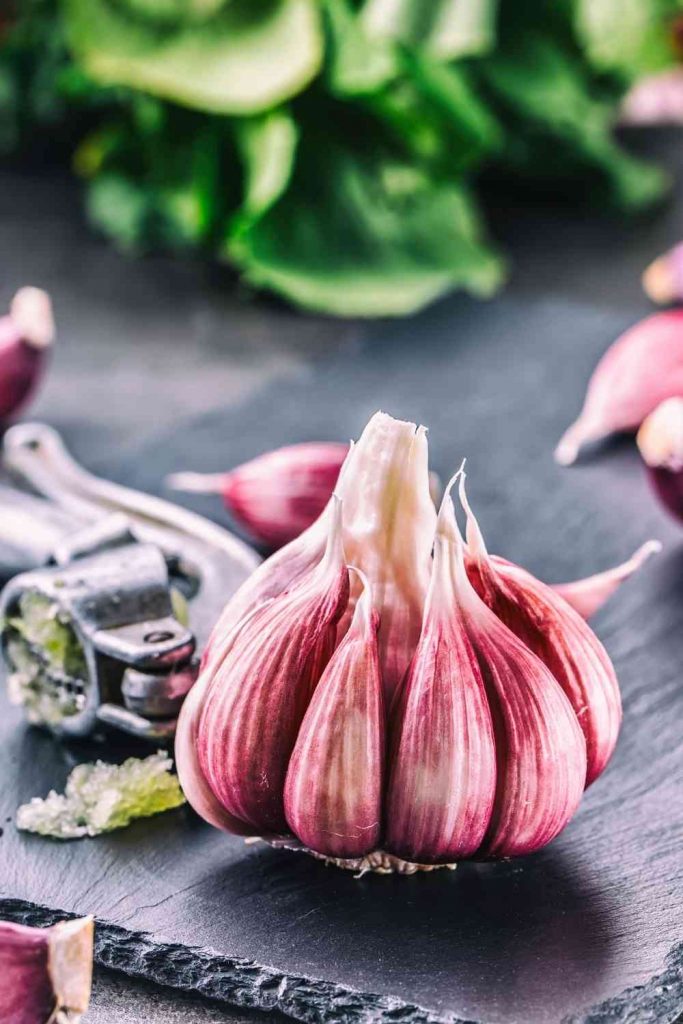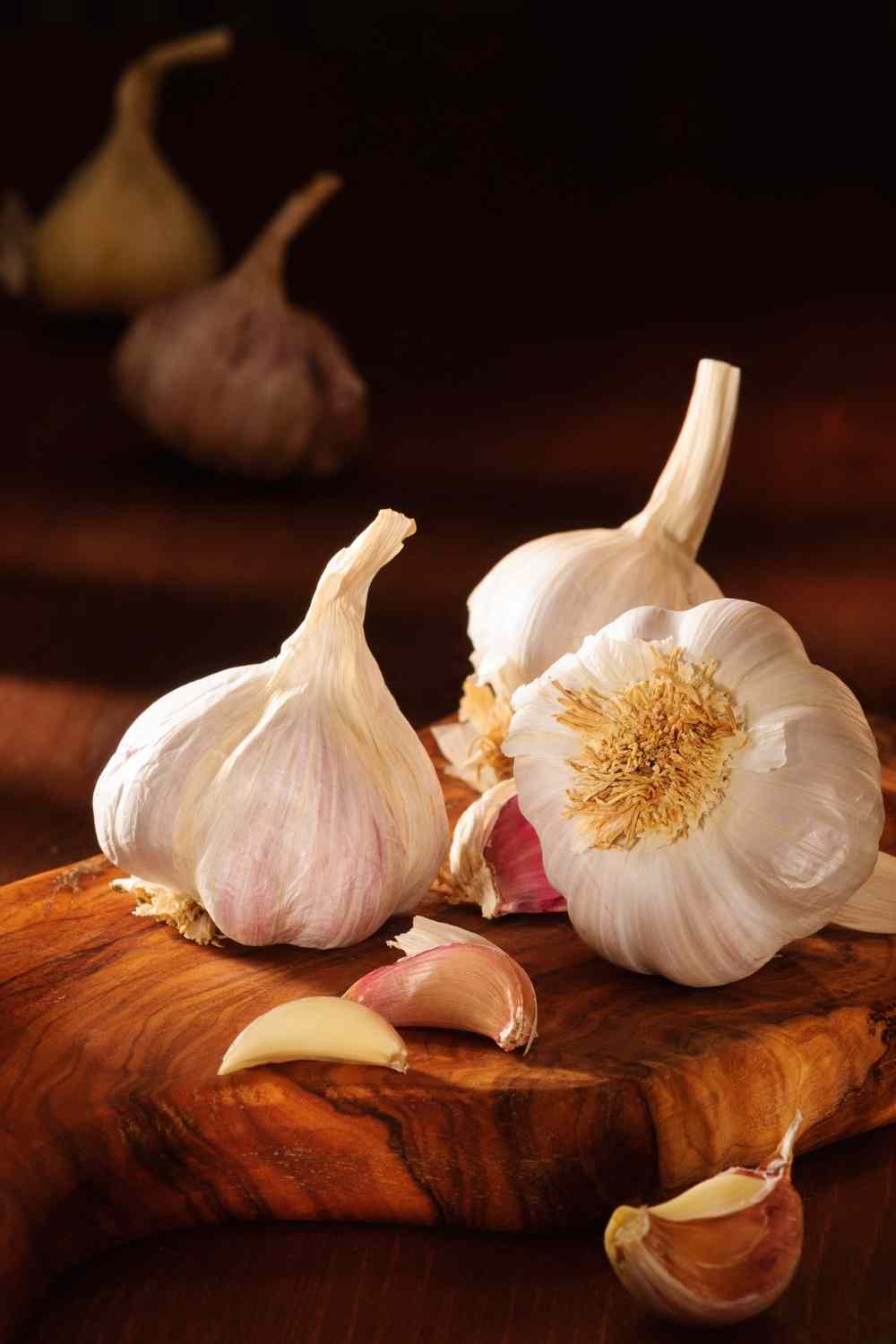This flavorful, aromatic vegetable does more than enhancing the flavour of your spaghetti sauce. Garlic is high in vitamins and minerals that are excellent for you, such as manganese, selenium, vitamin C, vitamin B6, and other antioxidants like allicin. Garlic's health advantages have been known for years, ever since Hippocrates, the ancient Greek physician, advised it to cure a variety of ailments. Garlic's medicinal powers are now being recognised by contemporary medicine as well. According to new research, garlic consumption may help to relax blood arteries and enhance blood flow. So get some of the freshest garlic cloves you can find and include them into your regular diet to gain these health advantages.
What is garlic?
Garlic is one of the world's oldest cultivated plants and is a hardy perennial plant that belongs to the Liliaceae family. It is native to Asia, Europe, and North America. Onions, leeks, chives, and shallots are all members of this family, as are other vegetables. They are identified by a robust scent and a particular flavour that distinguishes them.
Typically composed of eight to twenty tiny teardrop-shaped cloves encased in a white, parchment-like covering, the bulb of the garlic plant is the most regularly utilised portion of the plant and is the most widely available.
Advantages in terms of nutrition
One garlic clove (4g) has the following nutrients:
- 4Kcal / 16KJ
- 0.3g protein
- 0.0g fat
- 0.7g carbohydrates
- 0.2g fibre
- 25mg Potassium
Proven Health Benefits of Garlic
Jump to:
- 1. Blood Pressure Control
- 2. Cholesterol Reduction
- 3. Lower Chances of Heart Disease
- 4. Garlic as a Cold and Flu Treatment
- 5. Improved Athletic Results
- 6. Bones that are more durable
- 7. Improved Memory
- 8. Super Skin
- 9. Consists of chemicals that have therapeutic qualities
- 10. It has the potential to lower the risk of heart attacks
- 11. Possibility of anti-cancer properties
- 12. Possesses antibacterial and antifungal characteristics
- 13. It may be beneficial to bone health
1. Blood Pressure Control
Garlic contains anti-inflammatory properties and aids in blood flow throughout the body. In many investigations, participants' blood pressure was shown to be reduced by 10% when they received garlic supplements. Keep in mind that the supplement doses—600 to 1,500 mg of aged garlic extract—are somewhat high. Start cutting since that's the equivalent of four garlic cloves every day.

2. Cholesterol Reduction
Garlic may help decrease cholesterol, which lowers your risk of cardiovascular disease. Over the course of five months, a group of research participants who took a garlic supplement saw their cholesterol levels drop. Commitment is the key here. Garlic's effects take a bit to kick in, like with many natural medicines, since you have to allow the vitamins and minerals to build up in your body. However, including garlic in your daily routine is a smart approach to establishing a long-term habit that will improve your health year after year.

3. Lower Chances of Heart Disease
Garlic is natural at lowering cholesterol and blood pressure, which helps to reduce the risk of heart disease. By relaxing stiff blood arteries and decreasing platelet aggregation, it may also help to lower your risk of heart disease. What is the mechanism behind it? Garlic boosts the synthesis of nitric oxide, which relaxes blood arteries. It also decreases blood clots by preventing platelets from attaching to proteins. Garlic has you covered when it comes to heart disease relief.

4. Garlic as a Cold and Flu Treatment
Garlic, when digested, strengthens the immune system and lowers the intensity and duration of cold and flu symptoms. Taking a daily garlic pill decreased the frequency of colds participants had by 63 percent, according to one research. According to studies, the average duration of cold symptoms decreased from five to one and a half days. When you sense a cold coming on, consider adding extra garlic to your meals if you enjoy it.

read also: 10 Healthiest Vegetables on the Earth
5. Improved Athletic Results
Garlic was employed in ancient societies to improve performance and minimise weariness in those who did strenuous work. Garlic was eventually used by Greek Olympic participants to improve their physical performance. It is now being used by contemporary athletes (as well as average people) to alleviate exercise-induced weariness. According to several studies, persons with heart disease who took garlic oil for six weeks increased their peak heart rate by 12% and were able to exercise for longer periods of time without becoming fatigued. If you prefer to keep in shape and like garlic, try adding a bit extra to your regular diet to see if you notice a difference in your endurance.

6. Bones that are more durable
Garlic has been shown to help prevent bone loss in women by raising oestrogen levels, which may be a huge victory for bone health after menopause. Garlic supplementation on a regular basis may help lessen your chances of osteoporosis and osteoarthritis. Other nutritious foods, such as dairy products, green leafy vegetables, seafood, and nuts, must be included to have a significant influence on bone density. However, if you want to amp up the flavour of your salmon and spinach supper, garlic is a simple addition.

7. Improved Memory
Free radical damage leads to ageing, but garlic contains a potent antioxidant called S-allyl cysteine that may help against this. This antioxidant has shown promise in preventing brain damage and improving brain function as you become older. Garlic's ability to decrease cholesterol and blood pressure helps it function by improving brain blood flow. This entails a lower chance of mental illnesses such as dementia and Alzheimer's disease.

read also: 5 Health Benefits Of Apples
8. Super Skin
Garlic is considered a superfood because of its many health benefits, including antioxidant, antibacterial, and antifungal qualities. This adds up to significant skin advantages. Do you suffer from acne? To kill germs, rub raw garlic on your pimples. If you have sensitive skin, just be cautious not to overuse it. Garlic's antioxidant properties come to the rescue when it comes to protecting your skin and preventing free radical damage. Garlic aids in the formation and lifespan of skin cells, therefore using a topical garlic extract over time may have anti-aging benefits. Garlic, long live!

9. Consists of chemicals that have therapeutic qualities
Much of garlic's medicinal reputation stems from the presence of an active component known as allicin. Sulfur-containing compounds, such as allicin, are responsible for the intense smell and peculiar flavour of garlic. Fortunately for us, the process of chopping or crushing encourages the creation of allicin in the food we prepare. Due to the possibility of heat inactivating some of the perceived therapeutic health benefits of garlic, it is recommended to add garlic late in the cooking process to prevent this from happening.
10. It has the potential to lower the risk of heart attacks
Garlic's ability to reduce the risk of heart disease and to assist regulate cholesterol levels has been the subject of many studies in recent years. There have been a number of studies that show that garlic decreases the likelihood of platelets (the cells involved in blood clotting) clumping together and accumulating on artery walls; this suggests that garlic works as an anticoagulant and, as a result, reduce the risk of heart attacks.
Moreover, garlic's capacity to expand blood arteries, enabling blood to flow more easily, has been shown to reduce blood pressure in studies.
11. Possibility of anti-cancer properties
Studies have been conducted on the sulphurous chemicals found in garlic to see if they have the power to prevent malignant cells and tumour growth. Although some data suggest that garlic may protect against colon, prostate, oesophageal, and renal cancer, the majority of the evidence comes from observational studies, with very small numbers of patients participating in the investigations. As a consequence, the relationship between garlic and cancer is still unclear, and more research is required.

12. Possesses antibacterial and antifungal characteristics
Garlic has a long history of usage as an infection fighter, having been used to combat viruses, germs, and fungus for thousands of years. Russian penicillin is the name given to it in order to highlight its antibacterial capabilities, which are once again ascribed to the presence of allicin in the substance. In addition, certain skin diseases, such as warts and bug bites, may react to the application of garlic oil or the crushing of a raw garlic clove.
13. It may be beneficial to bone health
Garlic, according to animal research, may help to reduce bone loss in female mice by raising their oestrogen levels. When a daily dosage of dried garlic extract (equal to 2g of raw garlic) was ingested by post-menopausal women, the researchers discovered a comparable impact to that shown in the previous trial.
Garlic ingestion may also provide some alleviation from the inflammatory symptoms of osteoarthritis, according to some research.
Is garlic a safe food for everyone to consume?
Garlic is generally considered to be harmless, and allergies to it are quite uncommon. If you are using garlic supplements to help regulate your cholesterol, you should get your cholesterol levels evaluated after three months. One to two full cloves of garlic per day are suggested as a daily serving of garlic (around 3000-6000mcg of allicin).
We would like to point you that some individuals who consume large amounts of garlic may develop indigestion, intestinal gas, or diarrhoea.




